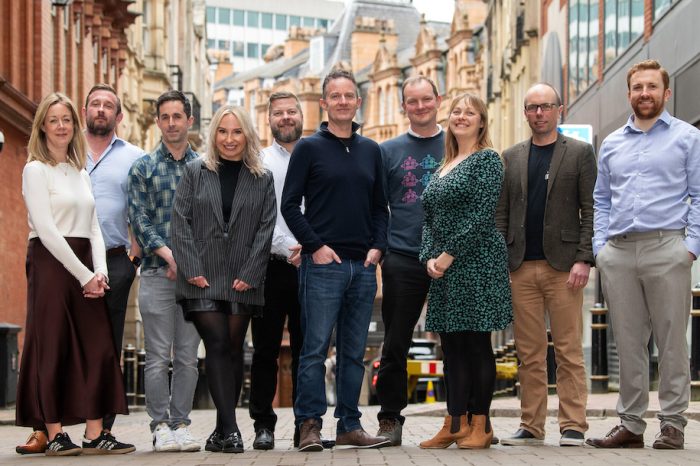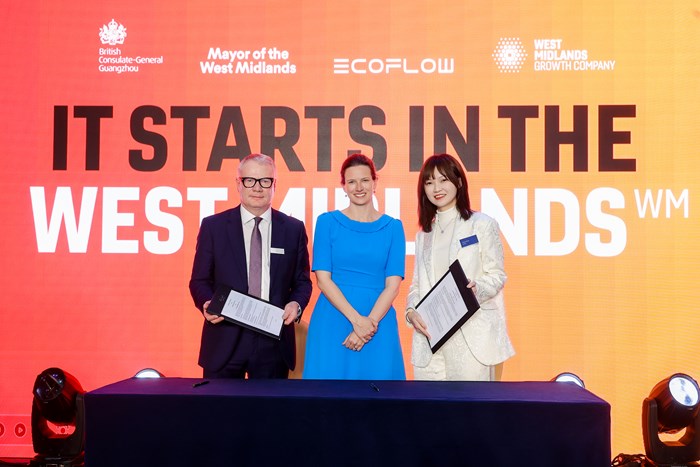Birmingham is emerging as a dynamic center of innovation and growth in the tech sector

As the second-largest city in the UK, it is hardly surprising that Birmingham stands as one of the country’s foremost tech and business centres, boasting over 2,000 tech startups and more than 6,000 tech businesses.
Indeed, the tech sector in the West Midlands was recognised as the fastest growing in the UK for both 2021 and 2022, according to reports from the government and Tech Nation. Venture capital investment in Birmingham’s tech startups has seen a substantial increase recently; 2023 witnessed the highest funding levels for these startups, even excluding a £500m ‘megaround’, with investment more than doubling compared to previous years.
“Over the last few years, we’ve witnessed exciting developments across Birmingham’s tech sector, including industry-wide collaborations, increased attention from investors and a huge number of SMEs using transformative technology to solve a range of business and social challenges,” stated Rebekah Taitt, Lloyds Bank’s regional development director for Midlands, SME & Mid Corporate.
“As a result, many tech startups in the city are scaling quickly which brings new challenges, ranging from managing currency exposure due to international investment to establishing appropriate remuneration packages to attract and retain the best talent. Our regional and industry experts at Lloyds Bank have been dedicated to supporting Birmingham tech businesses as they grow.”
Birmingham’s Tech Ecosystem Around 40% of the tech workforce in the West Midlands is based in Birmingham; the city employs 56,000 tech workers out of 144,000 in the region.
The five universities in the area significantly contribute to a vast and diverse talent pool, while also providing research facilities for R&D-intensive companies and business incubation services to academics and students keen to commercialise their innovations.
“The presence of a robust talent pipeline, with 132,000 students studying core subjects at West Midlands universities, strengthens Birmingham’s position as a leading tech hub,” says Svetlana Solomonova, who is involved in the design of tech facilities at architecture and engineering firm BDP in Birmingham and the surrounding area.
“Additionally, the region’s ability to retain a high percentage of graduates, coupled with its proactive and supportive business environment, distinguishes it from other tech hubs in the UK.”
Yiannis Maos, founder and CEO of TechWM, which launched Birmingham Tech Week in 2019, also highlights the city’s business and tech success is significantly due to its talented and ambitious citizens.
“Birmingham’s tech ecosystem is a special place,” he remarks. “The ecosystem is welcoming key players from major industries as they buy into the brilliant potential that Birmingham has to offer.
“That potential is epitomised by the people. Ask any Brummie and they’re proud to call Birmingham home because of how friendly, ambitious, and energetic we are – and that translates to the support felt in the ecosystem.”
Phoebus Software, based in Solihull, exemplifies how local tech companies contribute to a dynamic ecosystem. Founded in 1989, Phoebus provides agile technologies to the financial services sector and has been supported by Lloyds Bank. Dave Jones, Chief Finance Officer, told UKTN that the company is actively involved in local initiatives to support the business community, social causes, and job opportunities in the West Midlands.
He said: “We partner with a charity based in Leamington called Helping Hands who extend compassionate and practical support to those struggling with the causes and effects of homelessness and trauma. We also have very close links with Aston University and take a couple of placement students from them every year. In addition, we are members of the Solihull BID and local Chamber of Commerce.”
Birmingham’s industrial legacy continues to play a role in the development of new inventions and manufacturing applications. The city, once known as ‘the workshop of the world’, remains a hub of both small-scale metal workshops and large manufacturing facilities, producing innovations that push the boundaries of science and manufacturing, from the University of Birmingham’s world-leading nanotechnology specialism to pioneering medtech companies, many of which also manufacture their products in the West Midlands.
Svetlana Solomonova points out that the West Midlands contributes 8% of the UK’s total medtech turnover, attributing this partly to collaborative efforts between key players like the University of Birmingham, Queen Elizabeth Hospital Trust, Bruntwood SciTech, Calthorpe Estates, Aston University, and the University of Warwick.
Other subsector strengths in Birmingham include fintech, digital marketing, and gaming, with 25% of the UK’s gaming sector based in or around Birmingham. The specialist expertise and innovation emanating from the city, coupled with excellent infrastructure and transport links, has created a “strong business proposition”, Svetlana adds, which attracts established tech businesses to the region and encourages new business creation. She notes that this has attracted significant foreign investment, particularly from India, which allocated 57% of all its UK-destined investments to companies in the West Midlands in 2020.






